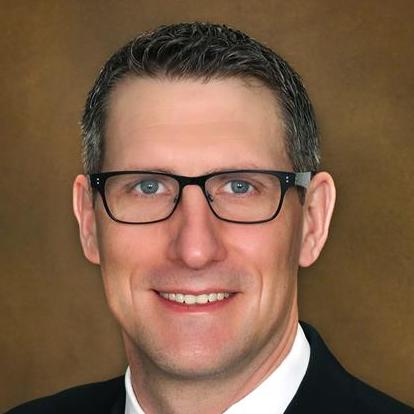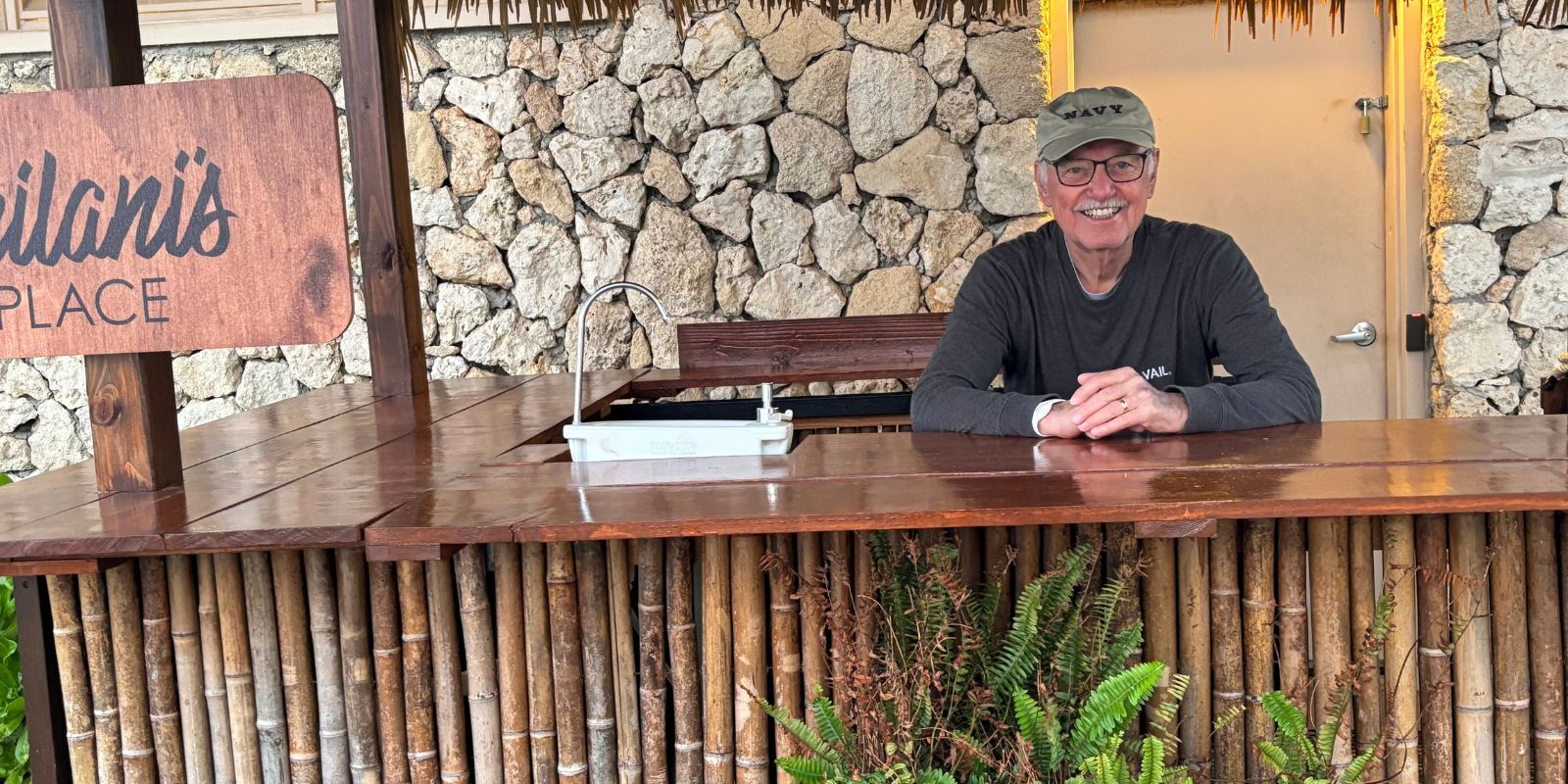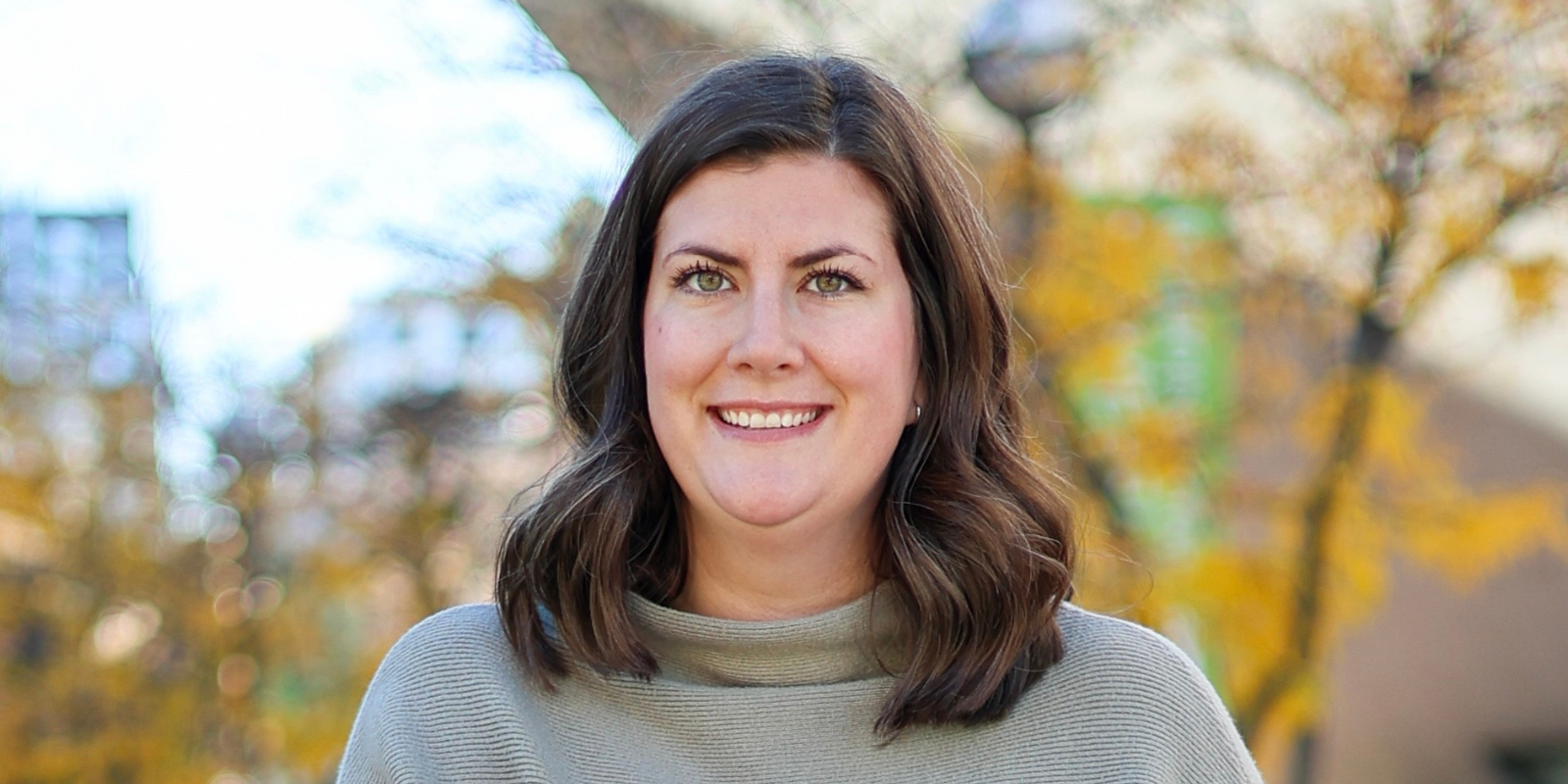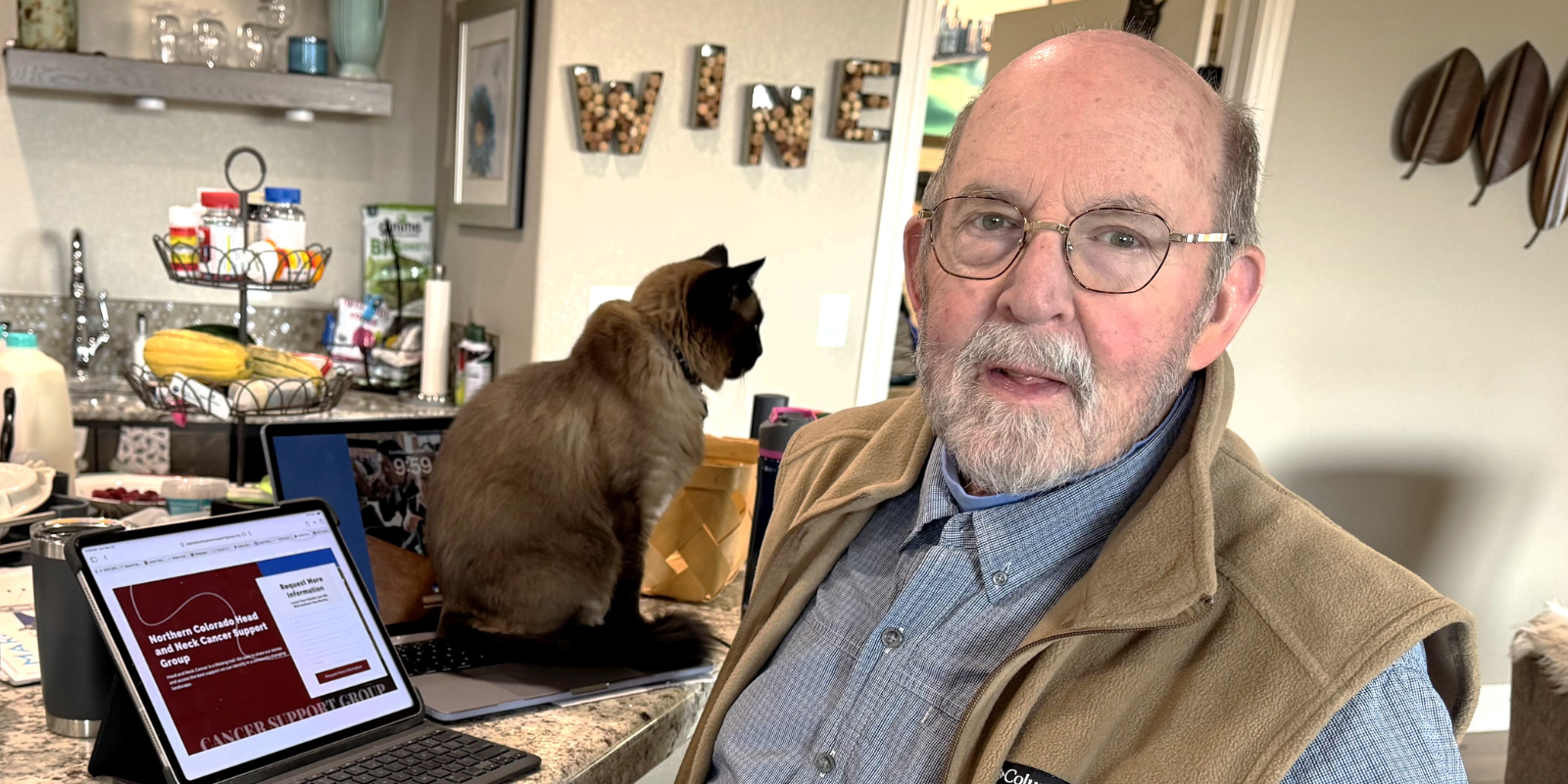To start with, there was his usual schedule of national travel for his job as a Wall Street journeyman – he was always flying somewhere. Add to that moving to Castle Rock from San Francisco, plus a love for concerts and baseball games and whatever else life offers, and it’s no wonder that Lincoln Yersin was feeling run down.
But this run down? This exhausted? He went to see his primary care provider in San Francisco a few times, had a few tests, and the diagnosis was stress.After moving to Castle Rock in mid-2018, though, he still was so tired. He made an appointment with Dilip Raghuveer, MD, mentioned what was going on, and a blood test revealed elevated liver enzymes. Raghuveer followed up with an ultrasound of Yersin’s liver and incidentally saw a mass on Yersin’s right kidney. A follow-up CT scan showed it was a 10.5-centimeter tumor.
As Yersin approaches the five-year anniversary of his kidney cancer diagnosis, he can look back and see stand-out lessons from his journey: How the darkest night can precede the brightest day. How important it is to be able to trust your doctor. How sometimes, timing truly is everything.
“Lincoln is such a positive person and has always approached everything with such a great attitude, even though his cancer journey hasn’t been easy,” says University of Colorado Cancer Center member Elaine Lam, MD, Yersin’s oncologist and an associate professor of medical oncology in the CU School of Medicine. “One of the difficult aspects of kidney cancers is that they’re often found incidentally – there’s no routine screening other than a urinalysis that a primary care provider might do. It’s rare to have symptoms until the cancer is more advanced, which Lincoln’s was. It highlights the importance of talking with a doctor right away if you have any unusual or persistent symptoms.”
Hearing the big C
It wasn’t that Yersin intentionally set out to do things right, but that’s what he did. He didn’t have some of the more common symptoms of advanced kidney cancer – blood in the urine, back or flank pain, and night sweats – but he’d lost some weight without trying and there was that out-of-character exhaustion. He listened to his body, he knew something wasn’t right so he asked his doctor, and that was a vital step.
But cancer? “I always thought cancer was something that was going to happen to somebody else,” Yersin says. “When it happens to you, it’s like, ‘Oh, my gosh, the big C, and they’re saying it about me.’”
He’d just moved into a new home, he was dating a wonderful woman he’d met the year before at a Tom Petty concert, work was going well... But in no time he was meeting with Thomas Pshak, MD, a urology-trained kidney transplant surgeon and assistant professor of transplant surgery in the CU School of Medicine.
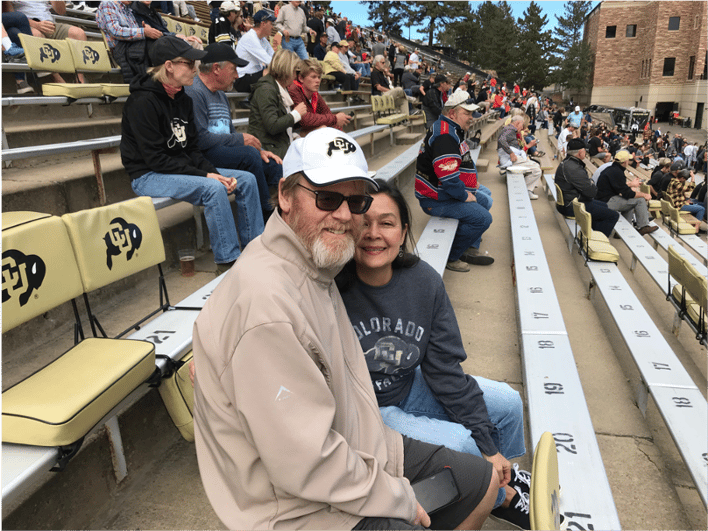
Lincoln Yersin and his wife, Kyle, at an event at CU Boulder.
“I remember meeting him and he had a little bit of the deer-in-headlights look that is so understandable when someone has heard the word cancer,” Pshak says. Surgery was scheduled for August 2018 and went really well, though Pshak did discover during it that the tumor had grown outside the kidney and into the inferior vena cava.
“Dr. Pshak said to me in pre-op, and I remember this very clearly, that we were about to spend nine hours together,” Yersin recalls. “But it only ended up being about four, even though it had spread into a vein. So, I was feeling pretty good about everything.”
Newly approved immunotherapy
Soon after, Yersin met with Lam, who ordered a scan in October 2018 to ensure everything was looking good. Unfortunately, the scan showed that cancer had grown in the area where his kidney had been; Yersin remembers seeing the strange cauliflower shape of it.
“Lincoln’s cancer pathology had very, very aggressive features, which put him in the high-risk category for cancer recurrence,” Lam says.
However – and this is where the uncanny nature of timing comes in – an immunotherapy combination had been approved to treat patients with metastatic kidney cancer barely six months before. In October and November 2018, Yersin underwent treatment with nivolumab and ipilimumab, a combination of two immunotherapy drugs that block certain proteins from getting in the way of the immune system killing cancer cells.
“Immunotherapies work by revving up the body’s immune system to help you fight cancer,” Lam explains. “When we use this combination together, in some cases it can rev the immune system up so much that then it turns on you and attacks you.”
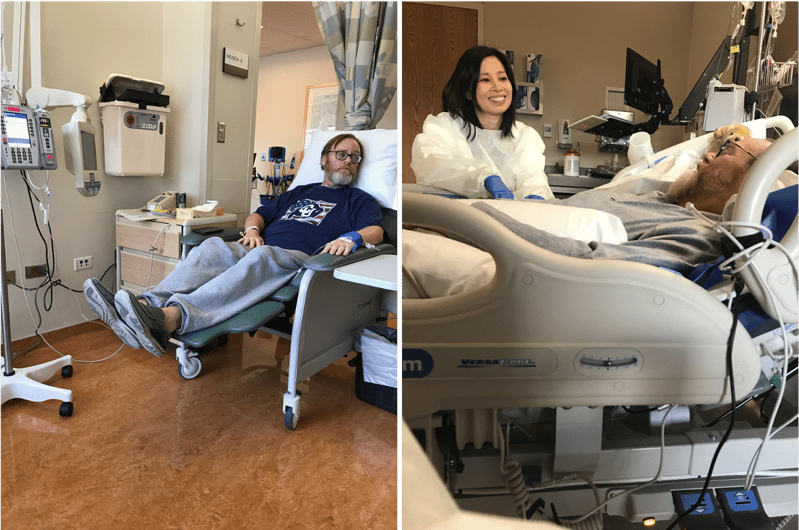
Lincoln Yersin during his treatment and hospital stay (with Elaine Lam, MD, right photo).
And that’s what happened to Yersin. He ended up having immune-mediated side effects from the immunotherapy affecting multiple organs. He ended up spending almost two months in the hospital. “It was a dark time,” he recalls. “I remember lying awake one night watching this light flashing as the helicopter came in to land, and thinking that I had a choice: I could focus on the darker side of the equation or I could choose to fight as best I could, I could choose to focus on what these immunotherapies were doing to fight the cancer. And the scans started showing that’s exactly what they were doing.”
“I won’t back down”
Step by incremental step, Yersin began feeling better, and the immunotherapy kept bombarding the cancer cells in his body. He was released to a rehabilitation center, where he had to re-train his legs to walk after almost two months in a hospital bed, and still the cancer cells were succumbing to the onslaught.
Every day he felt a little bit better. By May 2019 he felt well enough to return to work, and not long after he and then-girlfriend, now-wife Kyle got married. “She didn’t have to stick around through all that, but she did,” Yersin says. “I got really lucky with her.”
She’s the one who told him to get off the internet when he got sucked into a rabbit hole of statistics and survival rates and self-diagnosis.
"I tried to educate myself, but I realized how lucky I was that I could trust my medical team, I could communicate with Dr. Lam and know that she was being honest with me and giving me the best information possible,” Yersin says. “The entire team at CU, I just can’t say enough good things about every person I worked with.”
He progressed from having scans every month, to every quarter, and now has scans just once a year, and looked forward to hitting his five-year anniversary.
“Right now, Lincoln has no evidence of cancer recurrence,” Lam says. “He has shown a complete response and has just been getting annual surveillance scans. At some point we may be able to stop even those. I told him what I tell all my patients, that my goal is to do my best to put myself out of work.”
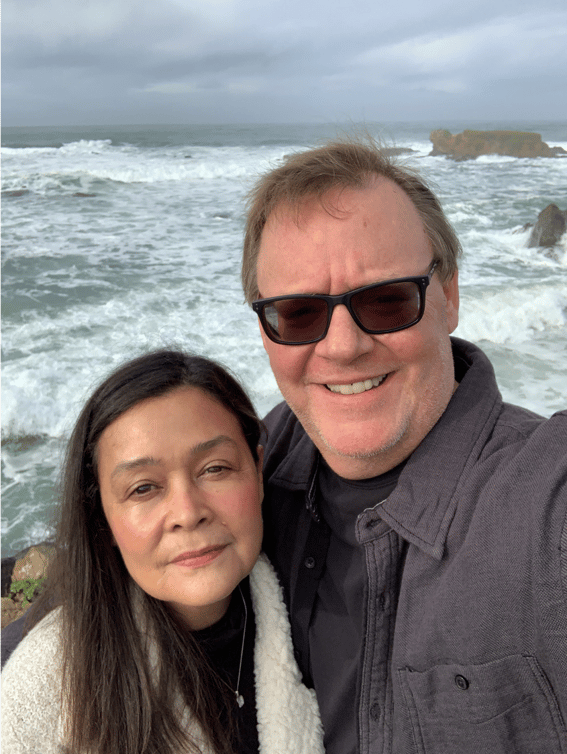
Lincoln Yersin and his wife, Kyle.
Every day takes Yersin farther from a bad event, lessening any lingering anxiety, and making all the good events he’s experienced in the time since that much sweeter – the Springsteen show in New York, the seats at Rockies opening day, the walks with his dog, the calm moments with his wife. He feels daily gratitude for the support of his friends and family, especially his parents and wife.
Each day is about showing up, he says, and he often turns to the words of Tom Petty, whose concert brought him and Kyle together: “No, I won’t back down.”


